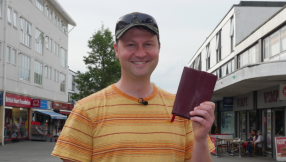The life of a modern-day missionary is far cry from the stereotype of a white Westerner opening the Bible to receptive communities.
On World Leprosy Day 2018 – Sunday January 28 – missionaries working for British-based charity The Leprosy Mission will be helping leprosy-affected communities lobby governments for their very basic human rights.
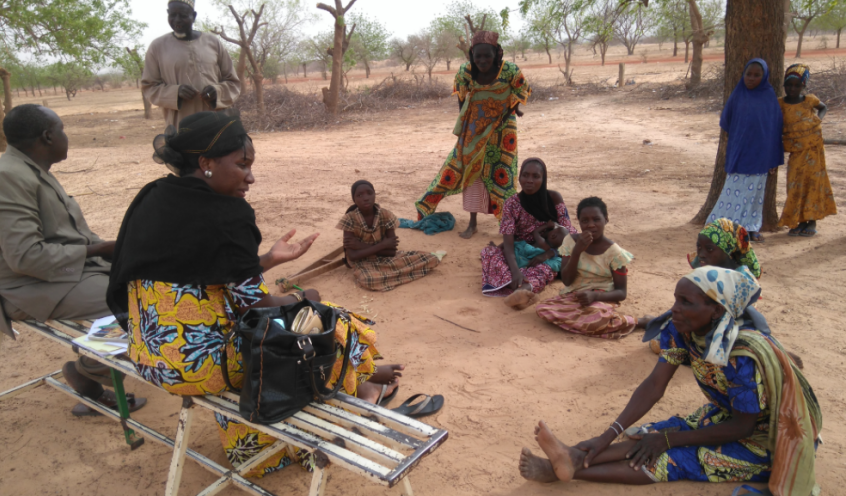
Sometimes it's for better living conditions but often it's simply for the most basic entitlements such as food rations for being disabled that they are entitled to by the law of the land.
With stigma surrounding leprosy still akin to what it was in biblical times in parts of the world today, many leprosy-affected people have become so ostracised they actually believe they are not worthy of begging alongside the beggar who has never had leprosy. Going into a local government office and arguing for the disability benefit they are entitled to would be inconceivable to them.
Jesus gives us the precise example of reaching out and curing the man with leprosy, giving him full acceptance and complete healing. In many parts of the world today, the reality is not so straightforward.
This is partly because leprosy is a disease of the poor. It breeds where there is dirty water, poor nutrition and low standards of living, meaning people's immune systems are weakened and they are unable to fight the disease.
It could be a consequence of general poverty or communities plunged further into poverty as a result of conflict. Dr Yousif Deng heads up The Leprosy Mission's work in South Sudan and has seen the devastation of the Luri Rokwe leprosy community just outside the capital Juba since the civil war first broke out in 2013.
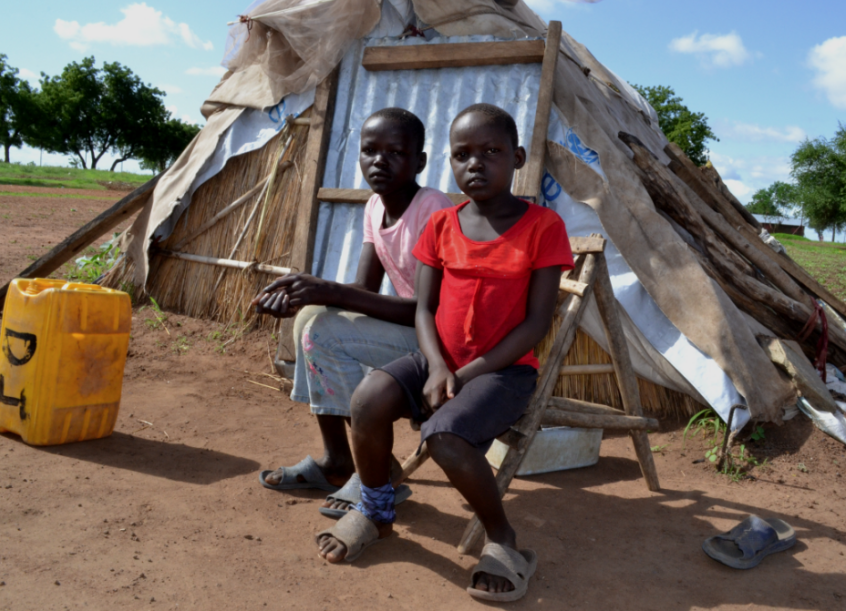
Gunfire crackled around the community with terrified families fleeing for their lives. Those who were disabled by leprosy struggled to keep out of harm's way, with many killed as a consequence.
The weight lies on Yousif's shoulders as he struggles to help these desperate people build self-sufficient lives by training them to farm maize, ground nuts and vegetables. He's come a long way. These were people who at one point were surviving on leaves.
Yousif says: 'I sometimes wonder whether people realise the knock-on effects of fighting. The war means that farmers have had to leave their land so many of them didn't grow crops last year resulting in food now being very expensive. Food can't be brought in from Uganda and Kenya as the only road out of South Sudan to these countries is usually blocked because of the conflict.'
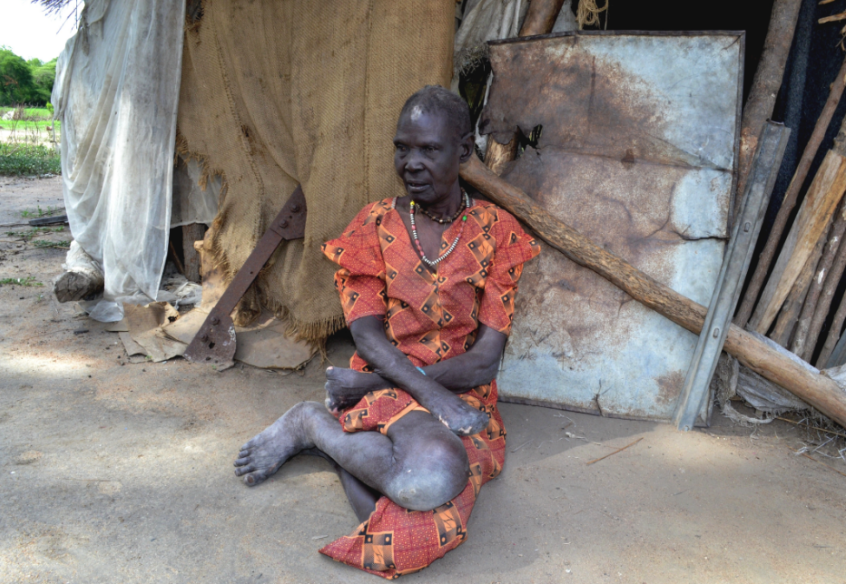
And his work is not without personal sacrifice. Yousif and his wife Awuoi have five children, the youngest of whom is just two months old. They also have another three girls in their care following a death in Yousif's family, so have eight children to bring up. But since February 2014, the start of the conflicts, the couple have lived mainly apart with Awuoi and the children fleeing to neighbouring Uganda for safety.
'It was a hard decision but it just isn't safe for them to be here,' explains Yousif.
'Awuoi used to work as a lawyer in Juba and has made huge sacrifices to keep the family safe. I miss them all very much but it is too dangerous to travel on the road to see them so I must save up and fly to Uganda every few months to visit them.
'My Leprosy Mission colleague, Mary, is in the same position with her husband and children, who are living in Nairobi, Kenya for safety.
'Living in this dreadful conflict, we have learnt to trust God's grace. We trust in God as we serve in his mission to His people. If we got worried, we wouldn't show up for work, so we depend on him.'
Pius Ogbu Sunday, operations manager for The Leprosy Mission in Nigeria, is no stranger to working against a backdrop of terrorism and crime. His wife and three children live in Minna, 150km from the capital of Abuja where Pius is based for work. It is on the road between Abuja and Minna that Pius and his family were recently attacked.
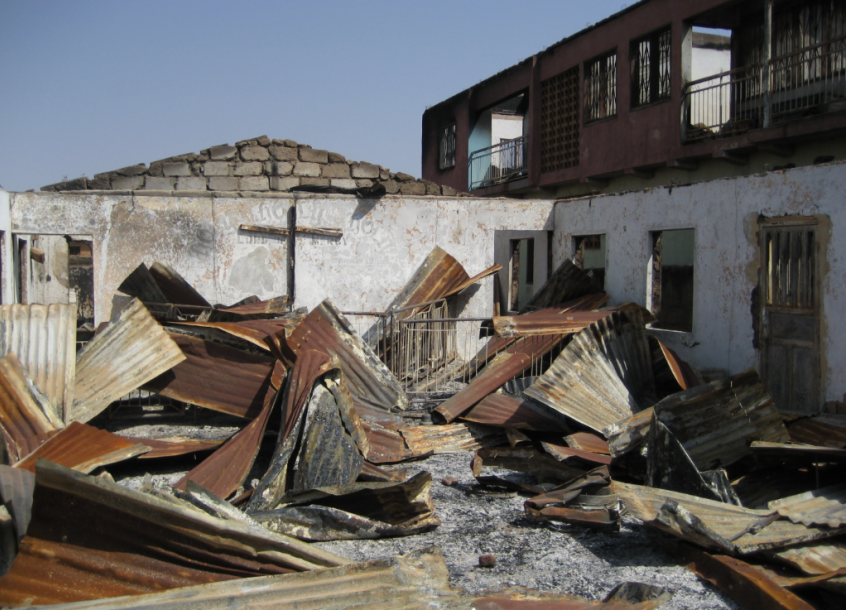
'It had been the school holidays and they were staying with me in Abuja,' he explained.
'We were returning to Minna when we heard gunfire which is not unusual in Nigeria.
'But suddenly, within seconds, there were men with machine guns and machetes pulling at the car doors shouting at me to unlock them.
'It was then that God clearly spoke to me, he said "Keep moving."
'So when I saw an opening in the cars ahead I squeezed through and slammed my foot on the accelerator. My heart was pounding and I was absolutely terrified.
'I then saw a man ahead with his gun poised.
'I shouted to my family to get down on the floor of the car and we drove through a hail of bullets.
'When we got to Minna I stopped the car to check for damage. I thought it would be riddled with bullet holes but there was not a scratch.
'We were all amazed and all we could do was thank God for shielding us.
'"Life is far from easy here but people affected by leprosy have far more to contend with than I do.'
Bunmi Oluloto is a Nigerian but felt called 12 years ago to cross the border to neighbouring Niger with his wife and two young children (they have since had a third) to work for The Leprosy Mission Niger.
It is an area where there are extreme religious tensions. Only last year a Christian American aid worker was abducted from his home in Niger and held hostage in Mali.
The nature of the work, however, requires Leprosy Mission workers to travel to remote communities to find, diagnose and treat people's leprosy. There is so much prejudice surrounding leprosy in Niger that those suspected to have the disease are often hidden inside by their families
Bunmi, now country leader for Niger, said: 'Looking back it was tough on my family to move to the middle of the desert and live in extreme heat surrounding by poverty.
'But it was God's plan for our lives.
He compares leprosy outcomes in Niger with those in India.
'There is terrible stigma surrounding leprosy in India yet only four per cent of people diagnosed have a permanent disability as a result,' he says.
'In Niger it is one in four new cases, meaning that people aren't getting diagnosed quickly.
'We feel the responsibility to travel to remote villages where we believe there could be three of more people with untreated leprosy.
'But we can't expect them just to come out and be examined as the fear surrounding the disease is just too great. It is literally seen as a curse.
'So it is a case of gaining the trust of the village chief and literally going door to door and finding the hidden people, bringing them the cure.'
Charlotte Walker works for The Leprosy Mission. To find out more about its work or to donate, click here.












